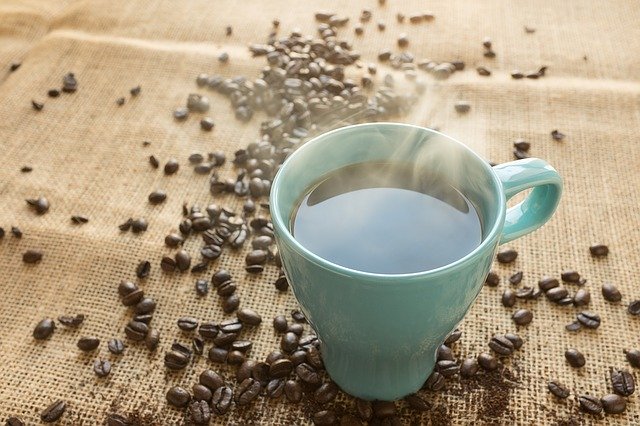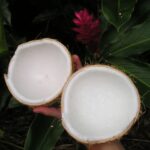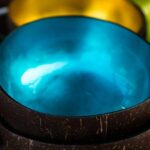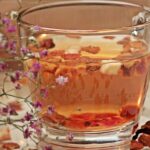In recent times kava is becoming very popular in the US. In fact, we can see many kava bars opening everywhere around the country. Customers of kava bars go to these places to find peace and relaxation and to escape from the noise of regular alcohol bars. In fact, many find kava a great substitute for alcohol.
Moreover, some could say that kava bars’ environment is not too different from that of coffee bars. But, are kava and coffee related? And what are their differences and similarities? In this article, we’ll explore kava, its properties, and effects and we’ll see how kava and coffee interact together.
What is Kava?
Thanks to its many properties, kava is getting more and more popular in America in recent times. This plant is native to the South Pacific islands, where it’s known by the names of “yaqona” in Fiji or “awaj” in Hawaii. It is also popular in Australia, where it receives the name of “grog” by the aborigine people. The plant has been traditionally used in these areas thanks to its calming, sedative and hypnotic properties. Additionally, the indigenous people of the South Pacific have used kava in their traditional ceremonies. Also, a preparation with this plant is offered to visitors when they arrive in the islands.
Kava, or Piper methysticum, belongs to the Piperaceae family, which is the same as the pepper family. Typically, to enjoy kava’s properties, people prepare a beverage with a decoction of the root. Nevertheless, there are numerous different kava recipes that you can try.
Kava Properties and Effects
Most kava drinkers agree that kava helps relieve the stress and anxiety of their daily lives. But, what are the main properties of kava?
- Helps ease stress and anxiety
- Elevates mood while giving a sense of happiness and well-being
- Promotes relaxation
- Helps relieve insomnia
- Helps relax muscles
Additionally, it is important to add that, despite its euphoric properties and contrary to what some think, kava doesn’t have hallucinogenic effects.
Finally, consider that you shouldn’t take kava if you have liver problems or Parkinson’s disease, as it can have negative effects on people with these conditions. Also, you should avoid taking kava if you are taking anxiolytics, diuretics, or medications to treat convulsions, as it can interact with them.
Kava Vs. Coffee: Differences
Although some people may think that kava bars may be similar to coffee bars or cafeterias, this is not true. Whilst people use coffee to get energy, kava is a relaxing beverage. But let’s see the differences in detail.
Kava owes its properties to the kavalactones present in its roots. These kava compounds are thought to act on GABA, the main inhibitory neurotransmitter in the brain. Kavalactones are GABA agonists, which means that they will activate this neurotransmitter. Hence, this will result in relaxation, sedation, and reduced anxiety. Additionally, although kava doesn’t induce sleep like a sedative, it acts as a muscle relaxant and enhances deep sleep.
On the other hand, as it’s widely known, coffee’s main component is caffeine, to which it owes its properties. Caffeine is a natural stimulant, that works by blocking the sedative action of adenosine in our system. Additionally, it helps relieve epinephrine (adrenaline) in the system. This will produce a faster heartbeat and will increase blood pressure, giving an increased sense of energy.
In conclusion, kava and coffee are two very different substances that will give you the opposite effects. So, what happens when they interact? Let’s find out below.
Kava and Coffee Interaction
Considering the above-described differences, are kava and coffee a good combination? Although the obvious answer might be negative, there are some considerations that we can take into account. So, let’s see how kava and coffee interact together.
Although there are no studies on how kava and coffee interact together, anecdotal evidence shows that kava can potentiate the effects of caffeine. Some users report that they need to drink less coffee to feel its stimulant properties. In fact, some kava users describe how since they started taking kava, they have reduced their coffee intake during the day. Actually, this is not uncommon. Nevertheless, there are also many people that haven’t experienced this effect.
On the other hand, users report that drinking kava and coffee at around the same time can “feel weird”. Many people who have tried this combination say that it gives an unpleasant feeling and that they feel ill. Others report feeling nausea and dehydration.
Finally, consider that mixing kava and coffee might be potentially dangerous, as this combination can aggravate the side effects of both substances. So, in conclusion, although there are not enough studies on how coffee and kava interact together, most people find it a very bad combination and it’s not worth the try.



